When we talk about the search for life on other planets, sooner or later, one question comes up: What are the conditions for life, anyway?
Makes sense. After all, if you want to find new life in a place as huge as the universe, the first thing you should probably do is look for places with the conditions that support life. In a nutshell, those conditions are...
- Water (all living things are made of at least 50% water)
- A steady temperature above freezing and well below boiling
- Light and/or solar radiation for energy
- Gases, such as CO2 or oxygen, with the elements to help convert energy
Looking at the plants and animals that we know of, it all seems to check out. But there always seems to be an exception to the rules that keep us on our toes.
Well, meet the exception: Desulforudis audaxviator.
Mini lifeform, huge name
This ancient lifeform was found while drilling in a gold mine. (Getty Embed)
Okay, we could tell you how to pronounce that name (say deh-suhl-fur-OO-dis AW-dax-vee-ah-tur), but let's just call it Dez. Dez is a microscopic bacterium that measures only 4 micrometres in length (that's just .004 millimetres). This tiny lifeform was discovered in a South African gold mine, 3 kilometres (1.86 miles) underground in pockets of groundwater.
Dez never sees the Sun. Dez never comes in contact with oxygen. And Dez never takes in organic compounds, like carbohydrates and proteins, that help build life. Yet there it is. Alive and well, all by its lonesome, in a dark pool of water underground that has been undisturbed for millions of years. The only other living things it has ever encountered? Other Dezs! How does it do it?
I'll have the radioactive soup, please!
Dez survives on a chemical food created by the radioactive decay of elements in the rock that surrounds the groundwater. Whoa, come again?
An unstable nucleus, such as in uranium, slowly decays (breaks down) and leaks energy. This energy is enough for Dez to survive on. Think of it like the energy released by the Sun which leads to photosynthesis in plants. In case you're wondering (because we were), this is the first ecosystem ever found that survives entirely off of radioactive decay.
Life in isolation
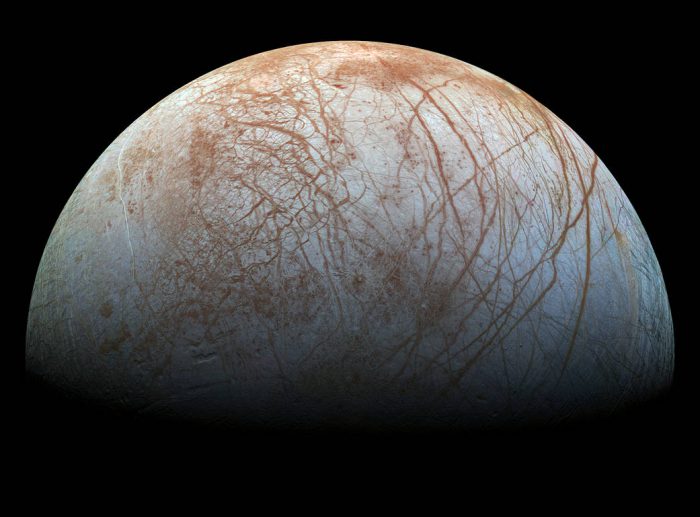
Jupiter's icy moon Europa is a place that scientists think may have life. Will that life look like Dez? (NASA/JPL-Caltech/SETI Institute)
The mystery of Dez speaks to two things.
The first is how life started on Earth. Before Earth had an atmosphere full of the oxygen, tiny bacteria like Dez would've likely been the first life on our planet. So when we look at this tiny bacterium, we're likely looking billions of years into our past at the kind of creature that kickstarted it all.
The second is how life might exist on other worlds. For example, scientists believe that Jupiter's moon Europa has a massive underground ocean. Though it wouldn't be able to get energy from the Sun, Jupiter's gravity is so mighty that it would likely help generate heat within Europa (which warms the water). And if radioactive elements like potassium and uranium exist on Europa...could Dez be there, too?
Though it will be a while before NASA can get a probe there to test these theories, one thing is for sure. When it comes to living things, they can exist in some unimaginable places. Life finds a way!
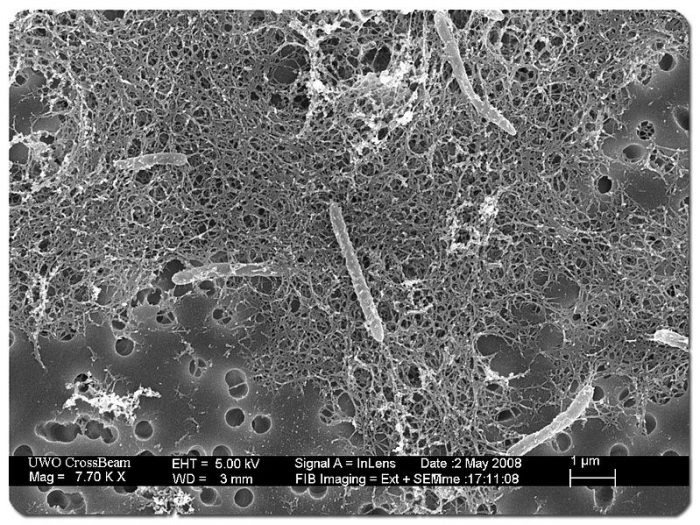 Check out how life grows in the dark. (NASA/Wikimedia Commons)
Check out how life grows in the dark. (NASA/Wikimedia Commons)
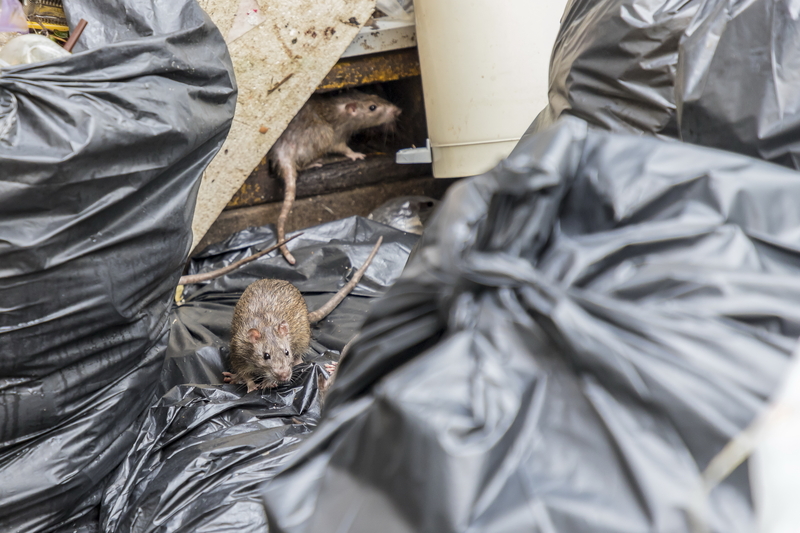



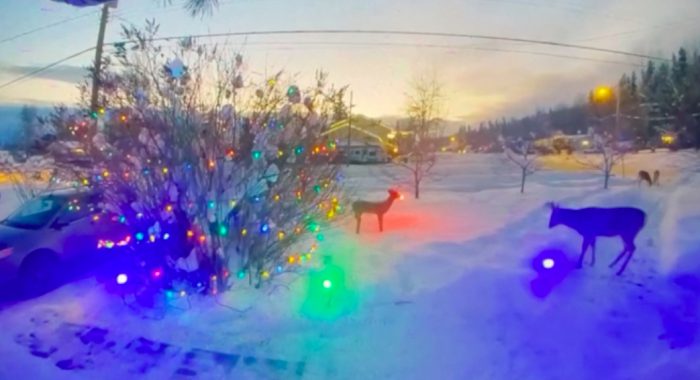




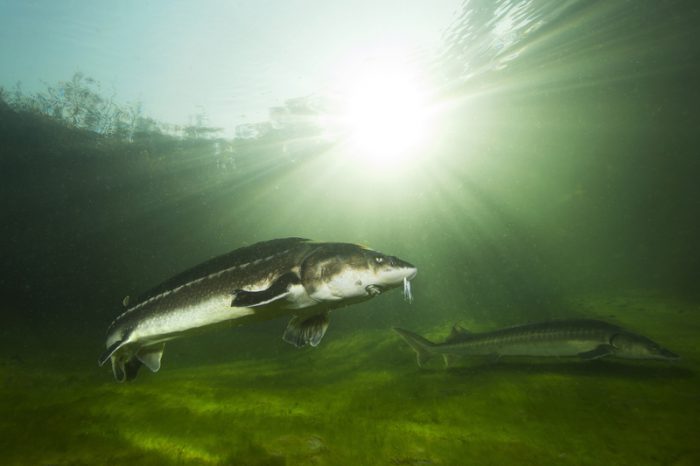
WHAAAAAAT 😕
😯 😯 😯 😯
reminds me of a book im reading 😉